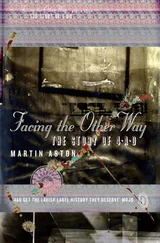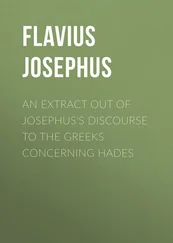“A reasonable view,” said Selena.
“This bird thinks there’s more to it than that. The way she sees it, it’s all due to money and influence. Money and influence being what the Remington-Fiske crowd have got bucketfuls of — you know, probably all went to school with the Home Secretary’s grandmother. So someone tipped the wink they weren’t to be embarrassed by anyone suggesting Deirdre did it on purpose. Well, that’s what this bird thinks. She was at the L.S.E.,” he added, as if in explanation.
“An opinion,” I said, “may be held by a graduate of the London School of Economics and nonetheless be true.”
“Anyway,” continued Cantrip, not looking convinced, “the fuzz didn’t say anything at the inquest about the wall round the roof being too high to fall off. And the Coroner didn’t ask. And all the family said how bright and breezy Deirdre had been that afternoon, which this bird says is what you’d expect them to say. So the verdict was misadventure and everything was tickety-boo. But what the fuzz really think is that Deirdre did it on purpose.”
Physically, no doubt, it was entirely possible: a girl five foot two in height does not lean over a parapet of five foot four; but if resolved to throw herself over, she may easily scramble on to it. As to her reasons — well, she did not seem to have been of a notably light-hearted disposition: comparing her own position with Camilla’s, it would not be surprising if she were discontented; and the young take desperate remedies for discontent. The police, with great experience in such matters, believed that she had done so: could we not with good conscience accept that they were right?
“No,” said Julia, “no, I don’t think we can. The police don’t know about the letter. Whatever suicidal inclinations she might have had at any other time, we know she didn’t intend to die on the Saturday of the Boat Race; she intended to come and have dinner here at Guido’s and tell me about some discovery she’d made. Something she thought was interesting.”
“No doubt when she wrote to you that was her intention. Suicide, however, is a matter of impulse: a degree of despair may be reached, my dear Julia, at which the prospect of having dinner with you in the evening is an insufficient inducement to survive the afternoon.”
It was in vain, however, that I sought to reason with her. Julia has moments of unforeseeable stubbornness: encouraged by more than her fair share of Frascati, she now showed a disposition to begin talking about Sir Thomas More again.
I inquired, with resignation, what arrangements could be made for me to meet further with the descendants of Sir James Remington-Fiske.
Victoria — ah, Victoria, starting-point of all true journeys, all southward voyages of pleasure or exploration, all escapes, all elopements, all flights from financial and emotional creditors. At the thought of her infinite possibilities what pulse could fail to beat faster?
“My dear Hilary,” said Ragwort, “we are only going into Sussex.”
“You fail,” I answered, “to discourage me. It is a charming county for a visit.”
Under the grimy sunlight which filters through her vaults of corrugated glass there prevails an atmosphere of almost Continental exuberance — the bars and station cafes strive gallantly for a Parisian look, and it is possible, even on a Sunday morning, to purchase not only a newspaper but also a coffee and croissant: waiting for a train to take us to Godmansworth, Ragwort and I availed ourselves of this circumstance.
Godmansworth College, possibly known to my readers as a public school of sound if unflamboyant reputation, had the privilege at that time of including among its pupils Leonidas Demetriou and among its teaching staff, as junior classics master, a boyhood friend of Ragwort’s — a young man by the name of Peter Hayward. A telephone call on the previous day had conveyed to Ragwort’s friend my own passionate desire to visit the celebrated pleasure gardens, laid out in the eighteenth century by William Kent, which were not, however, open to the general public at any time convenient to me. The young schoolmaster had issued with a good grace the invitation which, had he wished to, he could scarcely have withheld. Ragwort had further mentioned, splendidly en passant, his brief professional acquaintance with Leonidas; the possibility, as Ragwort supposed it to be, that the boy might be going up to Oxford in the following year; the thought that it might be pleasant for him, in that event, if he already had one or two friends there; and that if Peter cared, therefore, to invite him to join us for lunch…
“I didn’t speak,” said Ragwort, as our train clattered happily through the green countryside, “of your influence with the Admissions Board. I thought it would be wrong, since so far as I know you don’t have any. If Peter, however, should somehow have gained the impression that you do, it would be unkind to disabuse him.”
“He surely cannot imagine,” I said, a little shocked, “that the prospects of Leonidas securing admission to Oxford could be affected by any personal partiality which might be entertained by a senior member of the University?”
“He may,” said Ragwort, “have some such notion… no doubt it is quite misconceived.”
“My dear Ragwort,” I said with some severity, “certainly it is. Admission nowadays is based entirely on merit. The boy is the son of one of the greatest poets of our time: at Oxford, whatever may happen elsewhere, I hope that will always be accounted sufficient merit to secure entry, without resort to influence or patronage.”
The village of Godmansworth, a cluster of red brick houses enfolded in the gentle Sussex hills, lay becalmed in the drowsiness of a warm summer Sunday. The cobbled High Street, deserted by all save a sleeping tabby cat, became after fifty yards or so no more than a country road: in the fields on our left browsed a few indolent cattle; on our right lay woodlands, unruffled by any breath of wind; all was rustic tranquillity. There was nothing to prepare us for any scene of violence or alarm.
We turned, about a mile from the village, down an avenue of chestnut trees, at the far end of which could be seen the facade of the great eighteenth-century mansion which is now Godmansworth College. There was no sound to be heard but the distant humming of bees, the warble of a wood pigeon, and, as we drew nearer, the high clear voices of boys singing in the chapel. The avenue divided; and we followed a path which led us round the western wing of the house, away from the sound of the singing. The terrace on the west looks out across the former deer park: we paused there to admire the distant prospect of the lake, an agreeable vista charmingly interrupted by a coppice of oak trees.
A figure emerged suddenly from the coppice, running with the swiftness of panic, yet with such graceful lightness that I could scarcely believe it was any girl of flesh and blood who fled so desperately through the long grass, her fair hair streaming wildly, her thin white dress savagely dishevelled, but rather that the dryad inhabitant of the oak trees was in flight from some gross and violent intrusion. The youth who a moment later appeared in enraged pursuit was well suited to the role of satyr: a heavy, hairy, hulking sort of boy, with a look, even at a distance, of loutish brutality. The fugitive seemed at first to be gaining ground; but stumbled; was overtaken and seized; and cowered pitifully from the instantly threatened blow.
It had not, I confess, occurred to me — so rapidly and unexpectedly had these events taken place — that any practical assistance ought to be offered to the victim. Ragwort, however, murmuring “Quite disgraceful” in the severest tone, had begun to remove his light-weight sports jacket.
Читать дальше












